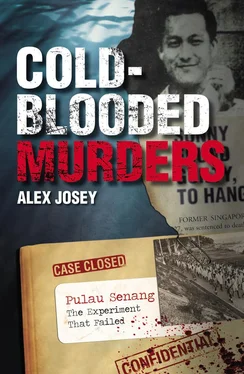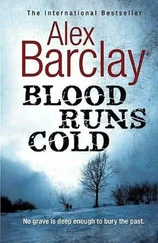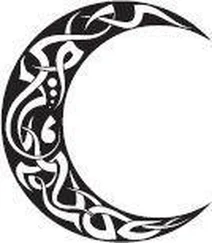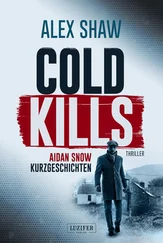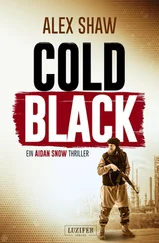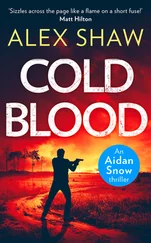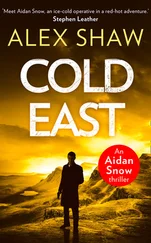Alex Josey - Cold blooded murders
Здесь есть возможность читать онлайн «Alex Josey - Cold blooded murders» весь текст электронной книги совершенно бесплатно (целиком полную версию без сокращений). В некоторых случаях можно слушать аудио, скачать через торрент в формате fb2 и присутствует краткое содержание. Жанр: Криминальный детектив, на английском языке. Описание произведения, (предисловие) а так же отзывы посетителей доступны на портале библиотеки ЛибКат.
- Название:Cold blooded murders
- Автор:
- Жанр:
- Год:неизвестен
- ISBN:нет данных
- Рейтинг книги:5 / 5. Голосов: 1
-
Избранное:Добавить в избранное
- Отзывы:
-
Ваша оценка:
- 100
- 1
- 2
- 3
- 4
- 5
Cold blooded murders: краткое содержание, описание и аннотация
Предлагаем к чтению аннотацию, описание, краткое содержание или предисловие (зависит от того, что написал сам автор книги «Cold blooded murders»). Если вы не нашли необходимую информацию о книге — напишите в комментариях, мы постараемся отыскать её.
Cold blooded murders — читать онлайн бесплатно полную книгу (весь текст) целиком
Ниже представлен текст книги, разбитый по страницам. Система сохранения места последней прочитанной страницы, позволяет с удобством читать онлайн бесплатно книгу «Cold blooded murders», без необходимости каждый раз заново искать на чём Вы остановились. Поставьте закладку, и сможете в любой момент перейти на страницу, на которой закончили чтение.
Интервал:
Закладка:
Seow pointed out that the riot took place on a penal island and the persons on trial were detainees. “There is no way of getting round it, my Lord: and the fact would also come out that these persons are secret society members. That is why they have been arrested under the Criminal Law. Many of the witnesses will be similarly attired: they are also Criminal Law detainees.” Crown Counsel added that having group trials would take too long a period. Judge Buttrose: That, of course, is quite irrelevant, unfortunately. Obviously all of us want to get this case over and done with, but we can’t just say that we can’t have separate trials because they would take too much time.
Crown counsel argued that it would be difficult to avoid press reports of each trial and the question of injustice might then arise. Judge Buttrose: The fact that the issues may be multifarious, the fact that there are a large number of accused, the fact that it may be difficult perhaps, or more difficult than usual, to give a clear picture of this case to the jury, is, of course, no reason why either separate trials or trials in groups should be ordered. All I think I need say for the purposes of dealing with the arguments is in my view, difficult and unpleasant though the task and duty would be, that I direct that all the accused shall be tried together at this trial on the three charges.
The Judge, having ordered each accused to wear an identification number (‘how can you expect seven jurors to remember 59 names?’), urged all concerned to ‘let us get this case started on the rails’. Mr Ball formally applied for separate trials for separate charges on separate charge sheets, and the Judge refused the application, noting that all defence counsel associated themselves with the objection to a mass trial. “Now, have them charged,” demanded the Judge, and the trial was under way. One juror asked to be excused because he knew one of the accused by sight, ‘and I also have a lot of work to do’. The Judge excused him because he knew the accused. Another person was empannelled, and Loo Ting Soo was elected Foreman. The other six jurors were Lee Em Long, Ang Buck Chin, Siew Ngar Kee, Goh Siew Hee, Boey Poh Wai and Ong Kim Siang.
Mr Francis Seow opened his case. He addressed the Court for about three hours. His first witness was Corporal Albert Brendan Kitchen, a Royal Air Force photographer stationed at the RAF station at Seletar, Singapore. He testified that he took 63 photographs of Pulau Senang during the afternoon of 13 July, and later handed the negatives to Inspector Maurice Oh. S.V. Rajan, a police photographer, gave evidence that he took 18 photographs of various scenes on the island. Five photographs were of four male corpses.
Before adjournment at 4:00 PM that afternoon, the Judge asked for the co-operation of counsel in not smoking in Court. There was a notice to that effect. “If you start smoking I will leave the Bench,” he warned. He also ordered that counsel must not talk to the accused in Court. Counsel would, of course, want to discuss matters with their clients and the prison authorities would make arrangements for them to see them at any time, either before the Court sits or after the adjournment. When Ball began to protest, the Judge reminded him that the trial was ‘quite a major operation’. He promised counsel that proper arrangements would be made for them to see their clients privately, not in Court.
Few of the accused could speak English. Simultaneous translations had to be organised in Chinese dialects and Tamil. The Judge asked the Court authorities to arrange for extra microphones. Counsel on the second morning of the trial also took the opportunity to raise another important matter. Could a short adjournment be made at 11:30 AM, ‘as some of us’, said Koh, ‘may not have as strong a kidney as the others’. Judge Buttrose: If you feel any discomfort during the sitting, Mr Koh, do please stand up and let me know. I am not going to make a 10-minute break a feature of the day. If the jurors feel discomfort they can also let me know.
Another defence counsel sought the Court’s permission for the accused to have paper and pencil with which to make notes. The Judge at once agreed. Then came the question of whether the accused would take pencil and paper back to prison. Crown Counsel said no; but did not object to the accused taking in an exercise book with the pages numbered. But pencils could not be taken into prison. The Judge agreed. At last, during the afternoon of 19 November, the trial of the 59 men began in earnest when Major Peter Lionel James was called to the witness box. He was asked about the note he wrote in April to Dutton about work hours. Mr Braga: The conditions on the island were such that they were being slave-driven, driven like beasts of burden rather than human beings? It was the injustice and unfair treatment they were receiving that brought about this incident? Major James: I cannot agree with you. In my opinion there was no slave-driving. The place was run in what I consider the most enlightened manner. In fact I would not mind saying too enlightened. Mr Braga: It was the corruption, the injustice, the forced labour that brought this about? Major James: No. Mr Francis Seow: Major James, you visited Pulau Senang regularly. Did they look like slaves? Major James: No, they were always cheerful. Pleased to see me. Crown Counsel: Did anyone appear undernourished? Major James: Quite the reverse. They were all tanned by the sun and they looked to me almost like a collection of weight-lifters, big hefty fellows.
Major James was asked if he knew Dutton well.
“I knew him intimately.”
“How would you describe his ability as superintendent of the island?”
“He was a natural leader of men. He was a born leader. He was a most accomplished engineer. He was a man with the most effervescent personality, a man who was afraid of no task, a man who was prepared to give his most and best to what he believed in. He was never happy unless he was outside doing things himself. He designed everything. There was nothing on Pulau Senang which was not designed or built by him.”
Dutton joined the British army as a boy, came to Southeast Asia with Mountbatten’s forces, took his discharge in Singapore and joined the Singapore Harbour Board police. In 1947, he joined the Prisons Department. James said that Dutton was a natural leader. If there was any good in a man he would bring it out.
James described Dutton as an extremely humane person. He would call upon James often and ask him to try to help find work for men released from Pulau Senang. “He would ask me to intercede with the Central Investigation Department (CID) over certain individuals released to the Work Brigade and had got into trouble with that organisation and were in immediate danger of being detained all over again. If a man had genuine trouble at home, Dutton was quick to apprise me of the facts.”
James said at Pulau Senang detainees led more or less a free existence: they moved about freely. They could play games. They could swim in the sea. It was better than Changi Prison. If a man went back to Changi as a criminal detainee, the maximum time out of his cell would be about four hours a day. They lived in dormitories on Pulau Senang: in Changi, in cells.
James said he did not see the urgency for the jetty being finished. Dutton on the other hand was most anxious to complete it and to get it into operation. Dutton said he was expecting bad weather. He feared that the tide would move, pass over the jetty unless he hurried up.
James explained to one defence counsel that the long-service prisoners from Changi were used at Pulau Senang as storemen, clerks and checkers. They did not take part in the riot. About 200 detainees were not involved. There were some 300 there altogether.
Читать дальшеИнтервал:
Закладка:
Похожие книги на «Cold blooded murders»
Представляем Вашему вниманию похожие книги на «Cold blooded murders» списком для выбора. Мы отобрали схожую по названию и смыслу литературу в надежде предоставить читателям больше вариантов отыскать новые, интересные, ещё непрочитанные произведения.
Обсуждение, отзывы о книге «Cold blooded murders» и просто собственные мнения читателей. Оставьте ваши комментарии, напишите, что Вы думаете о произведении, его смысле или главных героях. Укажите что конкретно понравилось, а что нет, и почему Вы так считаете.
